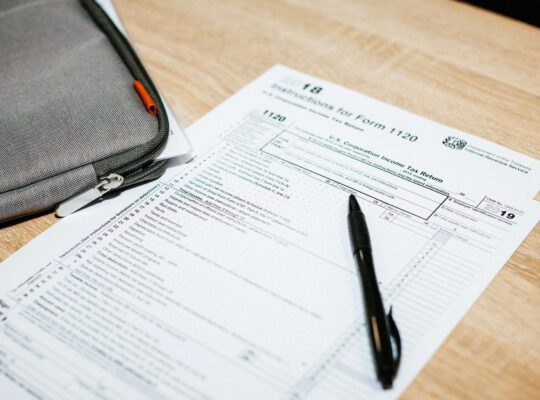Under the income-based repayment (IBR) programs, borrowers get to make loan repayments based on their income level and family size. For a person who has limited income, this becomes an attractive option. Instead of being tied to a fixed monthly payment, your payments as a borrower are calculated as a percentage of your discretionary income. In case you are a borrower with a high student loan balance and relatively low income, this offers a significant relief.
Such forms of payments typically extend the repayment period, allowing borrowers to even make more manageable monthly repayments. It is due to this that the program has been termed to be helpful, especially for homebuyers trying to save for a down payment while also managing their student loan debt.
Despite this being the case, it is essential to note that not all student loans are eligible for income-based repayment. Federal student loans like Direct Loans and Federal Family Education Loans (FFEL), are the ones that are generally eligible for income-based repayment. Private student loans and Parent PLUS loans, on the other hand, are not eligible for income-based repayment under the federal programs.
Federal Housing Administration (FHA) Loans Requirements and Guidelines
By nature and structure, the FHA is a government agency that provides mortgage insurance on loans made by FHA-approved lenders. The insurance offers protection to lenders against losses in case borrowers default on their loans. Among first-time homebuyers, FHA loans are the most popular because of the low down payment requirements and more lenient credit score requirements compared to conventional loans.
In order for a borrower to qualify for an FHA loan, there are certain eligibility criteria that they ought to meet:
- Credit score – Borrowers ought to have a minimum credit score of 580 in order to qualify for FHA’s 3.5% down payment option. Also, people with a credit score of between 500 and 579 are also eligible for an FHA loan but under the condition that they would have a make a larger down payment, a payment of at least 10%.
- Debt-to-Income Ratio – The debt-to-income ratio of a borrower is also put into consideration. A maximum debt-to-income ratio of 43% is required. What this implies is that your total monthly debt payments as a borrower, inclusive of the potential mortgage payment should not exceed 43% of your gross monthly income.
- Employment and Income Stability – To qualify, you need to have a steady employment history. In most cases, at least two years of continuous employment. During the determination stage, you would be required to provide proof of income and employment stability.
Does FHA Allow Income-Based Repayment for Student Loans
Does FHA allow income-based repayment for student loans? Yes, the FHA does allow borrowers to use IBR plans for student loans when qualifying for an FHA-insured mortgage. During the calculation of borrowers’ debt-to-income ratio, the FHA does consider IBR plans.

Unlike conventional loans, which typically use the full monthly payment amount when calculating the debt-to-income ratio, borrowers are able to utilize lower payment amounts based on their income under FHA. Due to this, the debt-to-income ratio of the borrower is improved and the chances of qualifying for an FHA loan increased.
On the other hand, it is paramount to be aware that FHA requires borrowers on IBR plans to provide documentation from their loan servicer. This documentation clearly states the borrower’s monthly payment amount based on their income. Without the documentation, a higher monthly payment amount would be used by the FHA in the debt-to-income calculation. As a result, the loan eligibility would be impacted.
Related Article: Best Small Business Banks in Florida
Advantages of Using IBR for FHA Loans
The use of IBR for FHA loans is associated with several benefits, especially for first-time homebuyers. Some of the advantages include:
- Lower Monthly Payments – Opting to IBR enables borrowers to reduce their monthly student loan repayments. As a result, they get to free up more funds for saving towards a down payment or covering other housing-related expenses.
- Improved debt-to-income ratio – By considering the IBR plans of borrowers, the debt-to-income ratio of the borrowers increases. Due to this, the qualification of an FHA loan is made easier.
- Flexibility and adjustability – IBR plans are designed to be flexible and adjustable, taking into account the income changes of the borrower. This is particularly advantageous for borrowers whose income is expected to increase in the future.
- Potential loan forgiveness –Some IBR plans offer loan forgiveness options after a certain period. For a borrower seeking long-term relief, this is a source of relief from student loan debt.
FHA Loan Application Process
The application process for an FHA loan with IBR for student loans follows a simple and straightforward process. The process is similar and does not have major differences, from the traditional FHA loan application process. The key steps are:
Loan eligibility – Prior to applying for an FHA loan, you need to make sure that you meet the FHA eligibility criteria. Otherwise, you would be wasting the resources that you have. This includes credit score requirements, debt-to-income ratio limits, and employment stability.
Gather documentation – Next, you need to gather all necessary documentation including proof of income, employment history, and documentation from your loan servicer concerning the IBR plan.
FHA-approved lender – After the documentation, you would have to research and contact an FHA-approved lender in order to find the best option for your needs. The lenders are familiar with the requirements of FHA loans hence they serve as a “guide” through the application process.

Complete the application – Fill out the loan application while ensuring you have provided accurate and detailed information regarding your financial situation, employment history, and student loan debt.
Submit required documentation – You then have to submit the required documentation, including proof of income, employment history, and documentation from your loan servicer about the IBR plan.
Underwriting process – The application and documentation would then the reviewed by the lender. They assess your eligibility for an FHA loan with IBR for student loans. Basically, the process entails the verification of your employment, income, and credit history.
Loan approval and closing – If the application is approved, you will be provided with a loan commitment letter by the lender. Upon reviewing the terms and conditions, you then close the process, which includes signing the loan documents and securing the mortgage.
FHA Loans and IBR Misconceptions
Examples of the common misconceptions about FHA loans and IBR are:
FHA loans are only for low-income borrowers – FHA loans are not exclusively for low-income individuals. Borrowers with higher incomes also stand in a position to benefit from the loans, especially when using IBR plans for student loans.
FHA loans require a perfect credit score – Although a higher credit score improves the chances of getting approved for an FHA loan, the credit score requirement is 580 or above. Hence, the minimum credit score is relatively lenient compared to conventional loans.
Income-based repayment plans are only for recent graduates – Borrowers at any stage of their career are able to opt for IBR as long as they meet the eligibility criteria. Hence, IBR plans are not limited to recent graduates.
FHA loans are only for first-time homebuyers – Despite being popular among first-time homebuyers, FHA loans are not exclusive to the group. Repeat buyers are able to benefit from the loans, especially if they are struggling with student loan debt and are in need of a more flexible repayment option.
Student Loan Debt Management Tips
While applying for an FHA loan, you need to strategically manage your student loan debt. Here are a few tips:
Evaluation of repayment options – Evaluate different repayment options for student loans. Consider IBR plans, extended repayment plans, and refinancing options that are in alignment with your financial goals.
Improve credit score – A higher credit score improves the chances of getting approved for an FHA loan. Take steps to improve your credit score by paying bills on time, reducing credit card balances, and disputing any errors on your credit report.
Save for a down payment – Put aside a small amount each month for down payment purposes. Although small, over time, it would add up to something. Consider automating your savings in order to make it easier to reach the down payment goal you have set.
Consult with professionals – Seek advice from professionals in the mortgage and student loan industries. Mortgage brokers, loan officers, and financial advisors provide valuable insights and guidance tailored to your specific situation.
Conclusion
The FHA does provide IBR for student loans. This offers relief for borrowers with a high student loan balance. Before indulging yourself, it is important that you thoroughly understand the FHA’s loan requirements and guidelines as well as the benefits and potential drawbacks of using IBR for FHA loans. In case you face any challenges, do make an effort to consult a professional with experience in the mortgage and student loan sectors.








